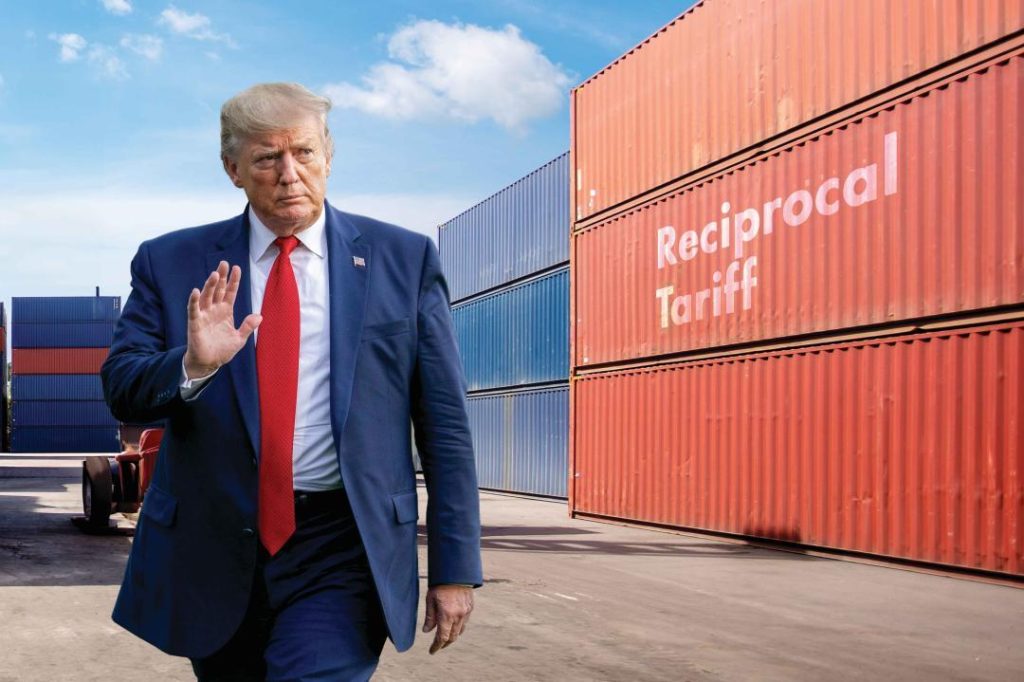
The Great Tariff War: Disruption, Diplomacy, & the Future of Trade
The ongoing trade tensions between the United States and its major trading partners have been making headlines for quite some time now. The latest development is the announcement of new tariffs by the US government, which has sent shockwaves across the global trade landscape. As the world grapples with the implications of this move, it’s essential to understand the context, the impact, and the potential future of trade in this turbulent environment.
Background: The Tariff War
The current trade tensions can be traced back to 2018, when the US government imposed tariffs on steel and aluminum imports from various countries, including China, as part of a national security investigation. This was followed by a series of escalating tariffs imposed by both sides, with the US targeting over $500 billion worth of Chinese goods and China retaliating with tariffs on over $100 billion worth of US goods.
The recent announcement of new tariffs on Chinese goods worth $300 billion, effective from September 1, 2019, has added fuel to the fire. The tariffs, ranging from 10% to 30%, will affect a wide range of products, including consumer electronics, clothing, and footwear. China has retaliated by imposing tariffs on $75 billion worth of US goods, including soybeans, aircraft, and vehicles.
Impact: Disruption and Uncertainty
The tariff war has already had a significant impact on global trade, causing disruption and uncertainty for businesses, consumers, and economies alike. The increased cost of imports due to tariffs has led to higher prices for consumers, while businesses are struggling to navigate the complex web of tariffs, quotas, and regulations.
The agricultural sector has been particularly hard hit, with soybean farmers in the US facing significant losses due to the retaliatory tariffs imposed by China. The sector has seen a decline in exports, and farmers are struggling to find new markets for their products.
The technology sector is also feeling the heat, with companies like Apple and Samsung facing higher costs due to tariffs on components and raw materials. The increased costs are likely to be passed on to consumers in the form of higher prices for electronics and other goods.
Diplomacy: A Way Forward?
As the tariff war continues to escalate, diplomacy has become the only way forward for the US and China to resolve their differences. The two countries have been engaged in trade talks, with the US seeking significant concessions from China on issues like intellectual property protection, forced technology transfers, and market access.
The latest round of talks ended without a deal, but both sides have expressed a willingness to continue negotiations. The US has said it’s willing to suspend the new tariffs if China makes significant concessions, while China has offered to increase its purchases of US soybeans and agricultural products.
India: A New Opportunity?
The tariff war has created an opportunity for India to strengthen its position as a global manufacturing and logistics hub. With China facing increasing scrutiny over its trade practices and intellectual property theft, companies are looking for alternative destinations to manufacture and source goods.
India, with its large and growing middle class, has emerged as an attractive alternative. The country has been aggressively courting foreign investment and has implemented a range of policies to attract companies looking to diversify their supply chains.
The government has also been investing heavily in infrastructure development, including ports, roads, and logistics facilities, to make India a more attractive destination for foreign investors. The country’s strategic location, skilled workforce, and favorable business environment make it an attractive option for companies looking to relocate or diversify their operations.
Future of Trade: A New Era?
The tariff war has marked a significant shift in the global trade landscape, with countries re-evaluating their trade relationships and supply chains. The future of trade is likely to be characterized by increased protectionism, with countries seeking to protect their industries and workers from foreign competition.
However, the tariff war has also highlighted the need for countries to work together to address global trade issues and promote free and fair trade. The ongoing trade negotiations between the US and China, as well as the efforts to conclude the Regional Comprehensive Economic Partnership (RCEP) in Southeast Asia, are a step in the right direction.
In conclusion, the great tariff war has sent shockwaves across the global trade landscape, causing disruption and uncertainty for businesses, consumers, and economies alike. However, the situation also presents an opportunity for India to strengthen its position as a global manufacturing and logistics hub, and for countries to work together to promote free and fair trade.
As the world navigates this turbulent environment, it’s essential for countries to engage in constructive dialogue and cooperation to address global trade issues and promote economic growth and development.
Source:
https://www.logisticsoutlook.com/supply-chain/the-great-trump-tariff-war






